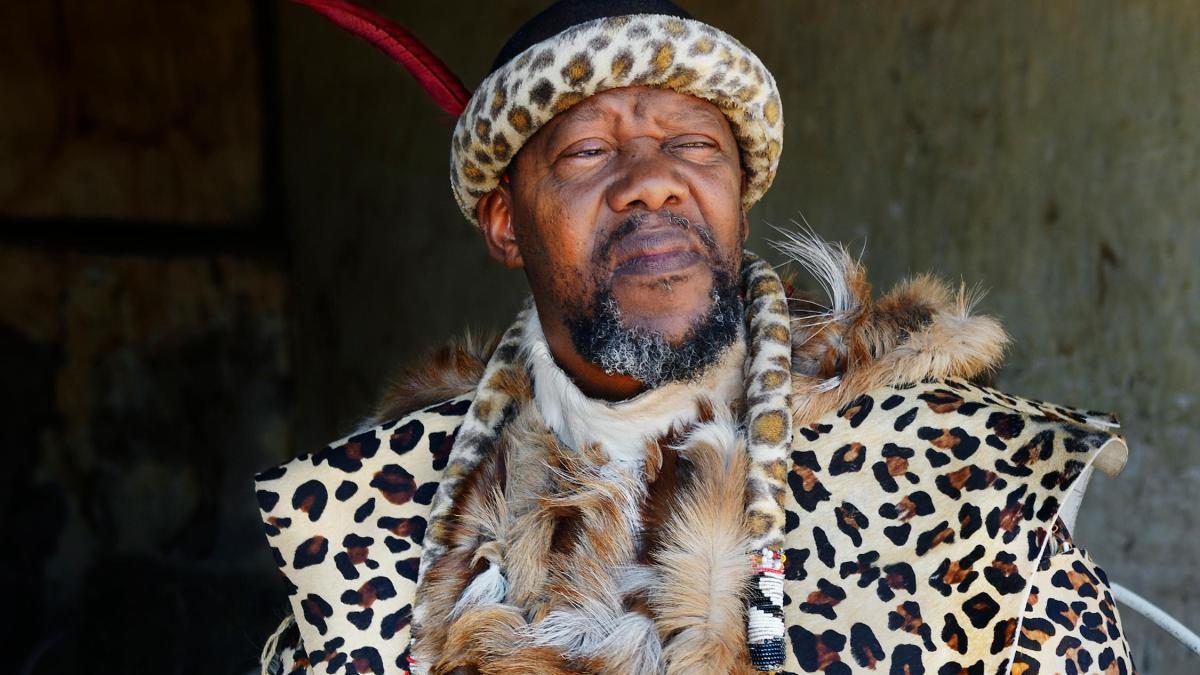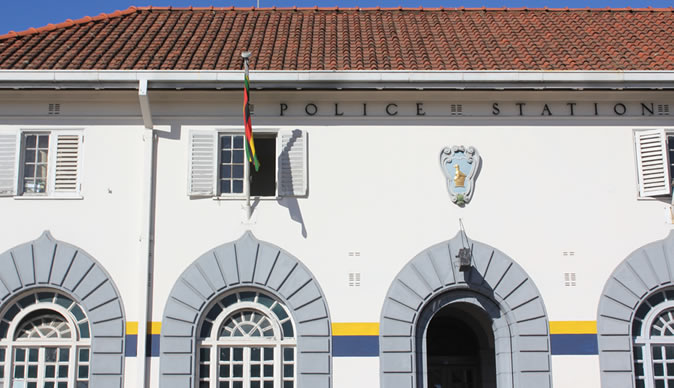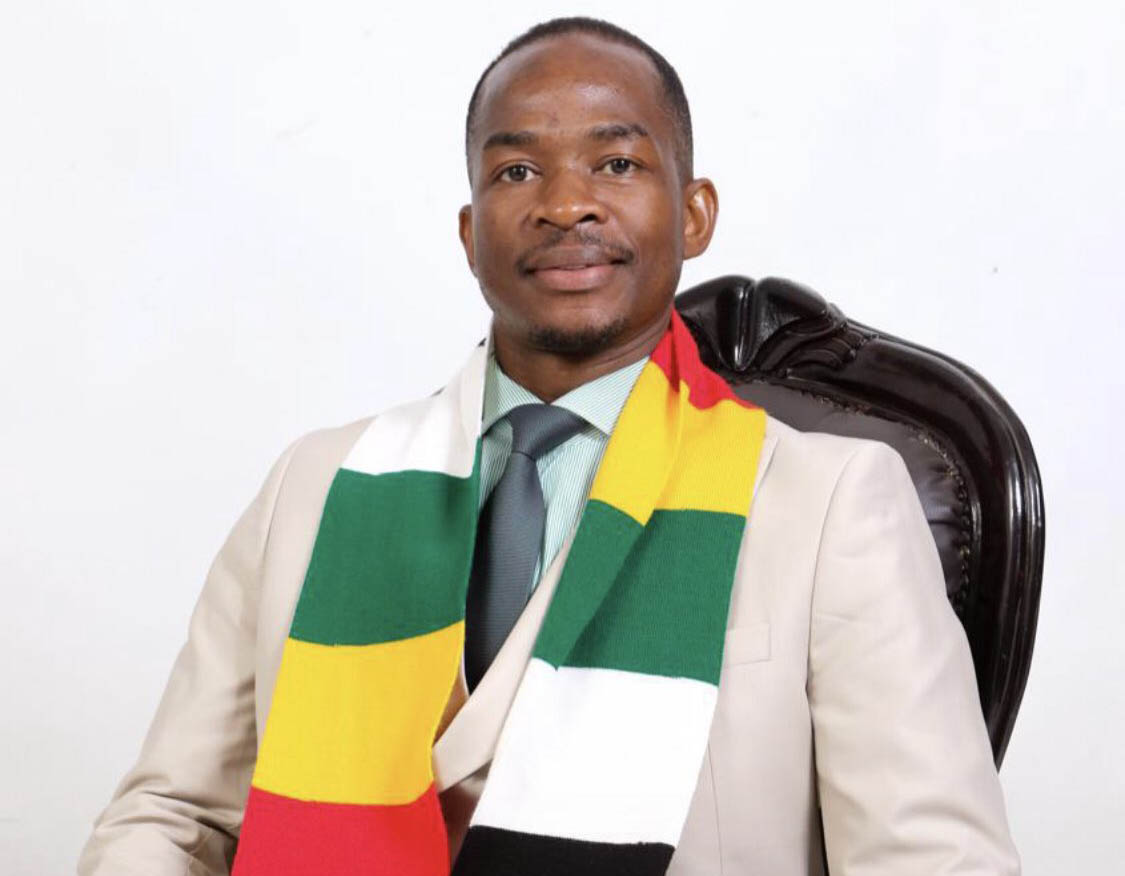BULAWAYO – Chief Nhlanhlayamangwe Felix Ndiweni was released on bail Wednesday after a judge ruled that his appeal against a two-year prison sentence had prospects of success.
At least four other traditional leaders followed proceedings from a packed gallery at the Bulawayo High Court, as anti-riot police patrolled outside and blocked access to the court for dozens of people.
The 54-year-old Ndiweni, the chief of Ntabazinduna, was jailed for two years with six months conditionally suspended by Bulawayo magistrate Gladmore Mushove after he was convicted of malicious damage to property with 23 others.
Twenty-three villagers who acted on the chief’s instructions when they destroyed a kraal and hedge of a family banished by the chief from his area had their two-year jail terms conditionally suspended on condition they performed 525 hours of community service.
Professor Welshman Ncube of Mathonsi Ncube Law Chambers, representing Chief Ndiweni, argued before Justice Thompson Mabhikwa that the sentence handed down by Mushove was “excessive” and “unjust”.
He argued that the issue for determination by the judge was whether their appeal against the prison sentence had any prospects of success, in which case the judge had to grant bail.
Brushing aside arguments by the prosecutor Kudakwashe Jaravaza that Chief Ndiweni might abscond, Justice Mabhikwa said: “It is a basic tenet of our law both in civil and criminal litigation that a litigant has a right of correctness of a judgment passed against him or her by a lower court to be tested by a higher court.
“I am not inclined to believe that the appeal is either devoid of merit or doomed to fail such that it be described to be frivolous. I therefore hold the view that there are prospects of success on appeal and accordingly the application for bail pending appeal succeeds.”
Justice Mabhikwa ordered Chief Ndiweni freed on $500 bail pending his appeal against the prison sentence. He must reside at his home in Ntabazinduna and report once weekly to the local police, the judge said as part of his release conditions.
Traditional leaders Chief Mathema, Chief Siphoso, Chief Bhidi and Chief Mabhena attended Chief Ndiweni’s court appearance in solidarity, while Professor Ncube had a team of lawyers in support including David Coltart, Dumisani Dube, Josphat Tshuma and Richard Majwabu.
Chief Ndiweni’s incarceration has attracted international media attention and led to claims by his supporters that his prosecution over a July 2017 incident was political.
Professor Ncube said the traditional leader’s prison sentence was a miscarriage of justice.
“It is respectfully submitted that the imposition of an effective custodial sentence of 18 months for a conviction of malicious damage to property valued at US$30 induces a sense of shock; is manifestly excessive and unjust such that it constitutes a miscarriage of justice and is mostly likely to be set aside on appeal by this honourable court,” he argued.
“The applicant submits that his admission to bail pending the determination of his appeal does not in any way endanger the interests of justice… Applicant studiously and religiously attended his trial for almost two years and thereby demonstrated his commitment and reverence for the administration of justice. Applicant desires vindication which he knows and believes he will obtain on appeal.”
Chief Ndiweni’s lawyers say at the heart of their appeal against his conviction and sentence is an old legal rule that “there can be no criminal liability without fault”. Chief Ndiweni, they say, was acting in his role as a traditional leader and genuinely believed he had the authority to take the actions he took.
Scenes outside Bulawayo High Court where a demonstration in support of jailed traditional chief, #Nhlanhla Ndiweni, has broken out despite heavy police presence. The judge is expected to make a ruling on the chief's bail application in the afternoon. @LynneStactia @DrNkuSibanda pic.twitter.com/A4kfuD8Btw
— Chris Gande (@Gandex) August 28, 2019
The lawyers also questioned a decision of the magistrate to discriminate against the chief by imposing a custodial sentence when his co-accused were given a community service sentence.
The prosecution argues that Chief Ndiweni, as a quasi-legal officer, had a higher culpability.
“The applicant as a quasi-judicial officer had a role to promote and uphold the law but in this case he took the law into his hands and the aggravating circumstances outweigh the mitigatory factors given that he ordered the destruction of the complainant’s property despite the presence of police officers at the scene,” Jaravaza argued.
“It is humbly submitted that the application has no prospects of success against conviction and the custodial sentence was proper in the circumstances.”
















